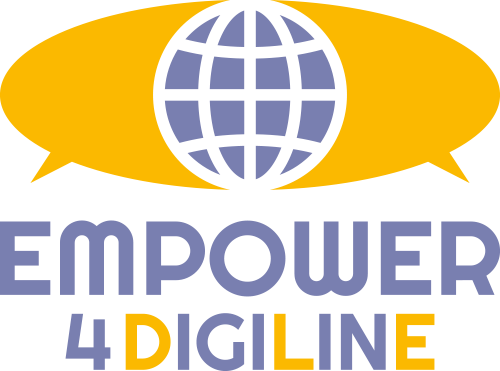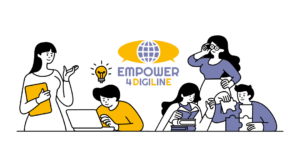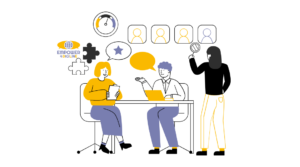In today’s fast-changing digital landscape, educators must constantly adapt to new technologies, ensuring that they remain effective in their teaching approaches. The Empower4DigiLine project recognizes this need and is committed to supporting language educators by enhancing their digital skills and resilience.
One of the key aspects of this transformation is digital resilience—the ability to navigate, adapt to, and thrive in a technology-driven educational environment.
But what exactly is digital resilience, and why is it so crucial for educators, particularly in language learning?
Understanding Digital Resilience
Digital resilience goes beyond just technical skills. It refers to a person’s ability to confidently use digital tools while protecting themselves and their students from potential online risks. It involves:
- Critical Thinking: Being able to assess online information, distinguish between credible sources and misinformation, and make informed decisions.
- Adaptability: Learning new digital tools and AI-driven technologies quickly and integrating them effectively into teaching.
- Cybersecurity Awareness: Understanding how to safeguard personal and student data, manage privacy settings, and avoid online threats like phishing or hacking.
- Well-being in the Digital Space: Managing screen time, preventing digital burnout, and fostering a healthy balance between online and offline learning.
For language educators, digital resilience is particularly important as AI-powered tools, such as chatbots, automated translations, and adaptive learning platforms, are becoming more widely used. While these tools can enhance the learning process, they also pose new challenges. Teachers must learn to integrate AI-driven technology into their teaching while maintaining human-centered, interactive learning experiences.
Challenges Faced by Educators in the Digital Age
The increasing presence of AI and digital tools in education comes with both advantages and challenges. Some common issues educators face include:
Misinformation & Digital Literacy: The internet is filled with information, but not all of it is accurate. Language teachers must learn to evaluate sources critically and teach students how to do the same.
Over-Reliance on AI: While AI-powered tools like automatic translation and chatbots can be useful, they are not always 100% accurate. Teachers must ensure that students use them as supporting tools rather than replacements for real learning.
Data Privacy Concerns: Many online platforms collect personal data. Educators need to understand privacy settings and how to protect both their own and their students’ information.
Digital Overload & Well-being: Excessive screen time and dependency on digital tools can lead to burnout. Teachers must find a balance between traditional teaching methods and digital resources.
How Empower4DigiLine Supports Digital Resilience?
The Empower4DigiLine project provides educators with practical tools and strategies to help them navigate digital challenges with confidence. Some of its key initiatives include:
- Interactive Online Courses:
Covering topics such as AI in education, digital literacy, digital strategies for inclusive and accessible education and online safety, helping teachers become tech-savvy while staying critical of digital trends.
- Game-Based Learning:
Developing an engaging online game that teaches students about digital literacy, critical thinking, and responsible internet use in a fun and interactive way.
- Video-Based MOOC (Massive Open Online Course):
Featuring real-life case studies and practical examples of how digital tools can be used effectively in language teaching/learning.
As AI and digital tools continue to evolve, digital resilience will become an essential skill for both educators and students. The Empower4DigiLine project is leading the way by providing teachers with knowledge, tools, and strategies through its online course to responsibly engage with new technologies.
By fostering digital resilience, we ensure that language learning remains engaging, inclusive, and effective in an increasingly digital world. Educators who embrace digital transformation with confidence can create innovative learning experiences that prepare students for the future while maintaining ethical, secure, and human-centered teaching practices.
Are you ready to build your digital resilience? Join the Empower4DigiLine project today and be part of the digital education revolution! https://www.empower4digiline.eu/
PH credits: @freepik







